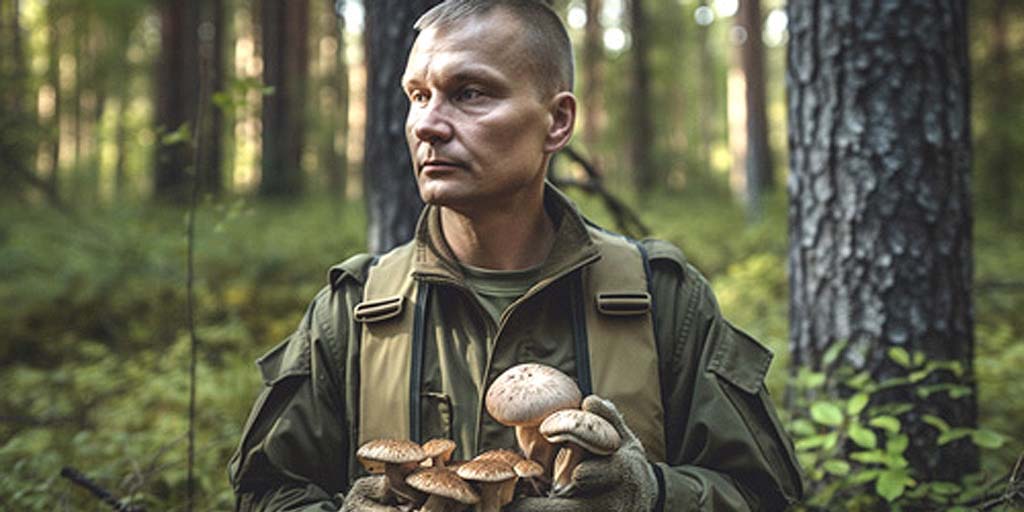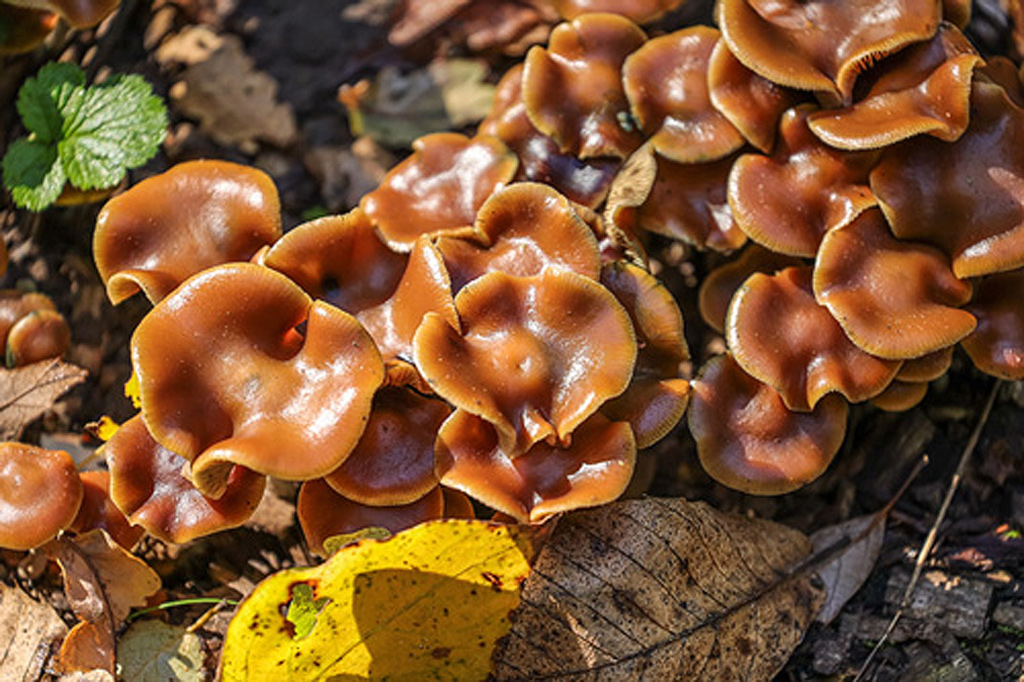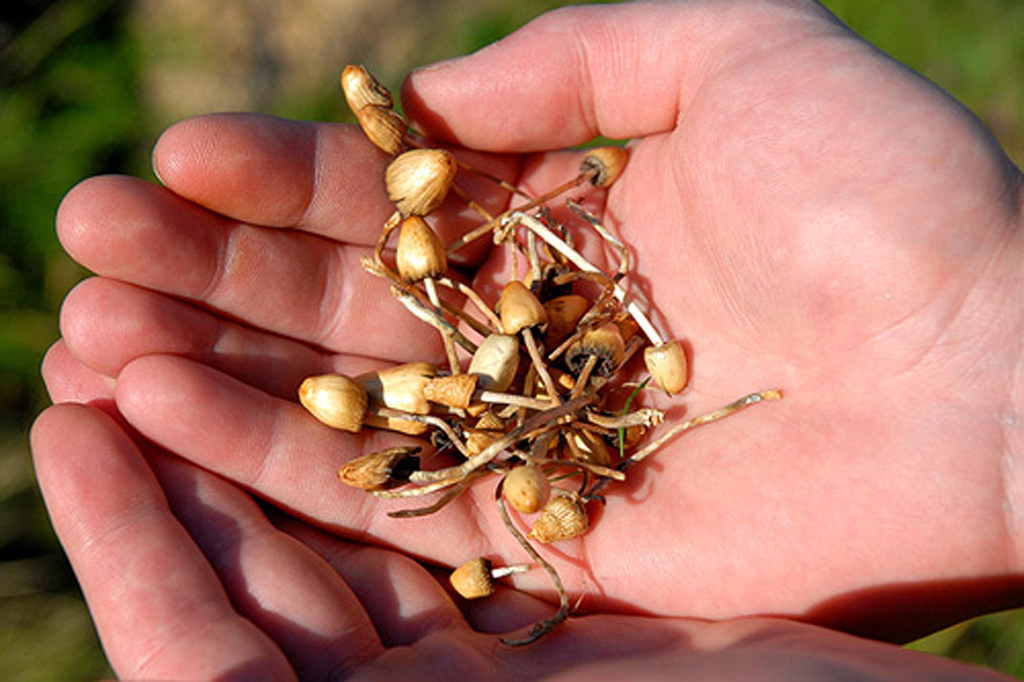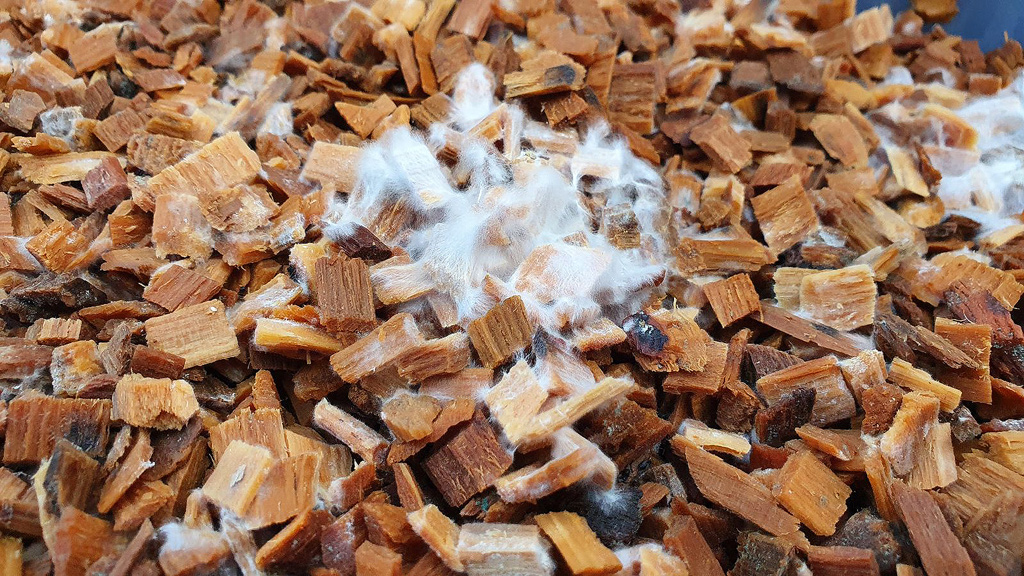
In a world where ecological awareness and sustainability are central, cultivating wild mushrooms is an intriguing and environmentally friendly option for enthusiasts of these fascinating organisms. This article takes you into the world of guerrilla mushroom cultivation: a secret and adventurous approach to cultivating psilocybe mushrooms in hidden corners of nature. Discover how guerrilla growers work, which mushroom species are suitable for this method, and how you can experiment responsibly yourself.
What is Guerrilla Growing?
Guerrilla growing is (preferably unnoticed) growing in a place that is not yours. In the wild, for example. In Europe, "the wild" is often a local forest, park, or meadow. Most mushrooms are so-called saprophytes, meaning they do not harm living trees, but help clean up dead wood in the forest. So you don't have to worry about them destroying the forest.
Why Grow Guerrilla Mushrooms?
Guerrilla growing is a way to hobby if it's not possible at home or in the garden. Because you don't have a garden, have no space in the garden, or are afraid of comments from neighbors, your partner, or family visiting. Guerrilla mushroom growing is therefore secretive. But that doesn't mean there are no YouTubers who neatly explain what to look out for when searching for mushrooms:
Well, they just don't tell where they have their secret mushroom patch! And if you do it as a result of this article, we advise you to also keep it to yourself.
Mushrooms in the Wild Popular
There are reports from nature managers saying that more and more types of mushrooms are appearing. Especially from the Psilocybe family. Is that because they do so well in nature due to the changing climate? Or is it for other reasons?
Of course, it's not natural. Psilocybe mushrooms are more prevalent because they have been planted. As we previously reported in an article on microdosing, we live in a time of a psychedelic revival. Thanks to medical science, world-famous podcasts, and even documentaries on Netflix, a snowball effect has been created:
- More people are aware of the benefits of mushrooms than ever before.
- Companies respond to the need to grow mushrooms themselves.
- Online there is a lot of accessible and well-written documentation on growing mushrooms.
- Truffle ceremonies, cacao ceremonies, and ayahuasca retreats are incredibly hip.
- There are more and more mushrooms appearing in the wild.
- More and more medical applications for psilocybin are being discovered for mental health care.
- Mushrooms are slowly but surely becoming more legal in the world than before.
- Mushrooms are moving out of the taboo corner. The label "drugs" is disappearing and being replaced with "powerful natural remedy".
- …and the list can be gone through time and time again.
Spreading Mushrooms Yourself
You can relatively easily spread mushrooms if you know what you're doing. Both the spores and the flesh of mushrooms can nestle into the ground under the right conditions and lay down new fungal threads (mycelium). That's what people do in various ways. From working like a field biologist with spore prints on a neatly chosen piece of landscape, to literally stuffing a super soaker with dissolved mushroom cultures!
Pros and Cons of Guerrilla Mushroom Growing
If you find it interesting to try it yourself, consider the following:
- Always having your own place to search for mushrooms with some certainty.
- The more mushrooms in the world, the more joy (according to research [1]).
- It gets you outside. This has physical and mental health benefits.
- Non-native species should not occur in places where they do not naturally occur. This can disrupt the ecosystem and threaten other species. This can sometimes take longer than a human lifetime, so you can't foresee the consequences.
- You can be caught by police or forest rangers. It's not allowed to change nature for the reason above.
- There is a real chance of misidentifying (identifying a species), potentially with life-threatening consequences.
Species to Consider
In a European climate, the following species can thrive:
- Psilocybe cyanescens (Wavy-capped psilocybe, rarely occurs naturally in deciduous forests).
- Psilocybe semilanceata (Liberty cap, commonly occurs naturally in meadows).
- Psilocybe azurescens (Does not occur naturally in Europe, but thrives in deciduous forests).
- Psilocybe serbica (Occurs naturally quite commonly in Southeast Europe, in deciduous forests).

Wavy-capped psilocybe - Psilocybe cyanescens

Liberty cap - Psilocybe semilanceata
Discussion
Food for thought: if we start spreading mushrooms like crazy; who is doing it right? The human or the mushroom? The whole purpose of living beings is reproduction and spreading genetic material to increase survival chances for offspring. If we do that for other species because we enjoy it, then mushrooms, like dogs, cats, tea, coffee, wheat, and cannabis, have it pretty good! The question is, should we do it? Is it okay to fill forests with mushroom spores?

Azurescens mycelium colonizing beech wood. The preliminary stage of the world's strongest mushrooms.
If you ask us, we have mixed feelings about it. Of course, we want everyone to have a good experience with mushrooms or other psychedelics at some point. That's why we are an idealistic online smartshop! At the same time, it's not the intention that other species suffer because of it. That's a feeling that's only strengthened after such an experience. Can we then strike a compromise and only help spread species that could naturally occur in the wild? An extra Liberty cap in a meadow or a Wavy-capped psilocybe in a beech forest isn't so much of a problem, we think. But if we spread non-native species, that could cause problems for the ecosystem. We say could, because whether that's the case in the case of the closely related Psilocybe azurescens, for example, needs to be thoroughly investigated. For now, it's fun pastime with the occurring mushrooms. Please be careful picking mushrooms.
Source:
[1] Griffiths, R. R. Johnson, M. W. “Psilocybin occasioned mystical-type experiences: immediate and persisting dose-related effects” https://link.springer.com/article/10.1007/s00213-011-2358-5 June 15, 2011. Psychopharmacology.
